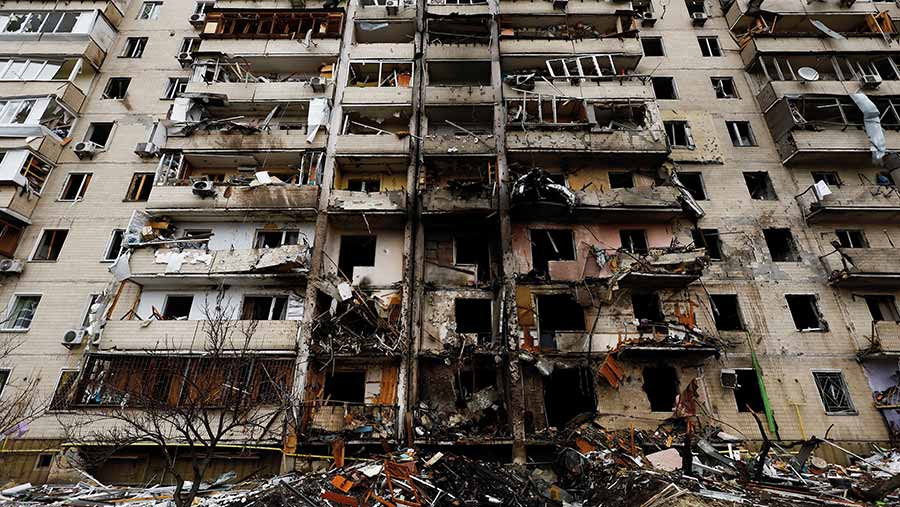Opinion: Time for government to address food security fallout
 © Umit Bektas/Reuters/Adobe Stock
© Umit Bektas/Reuters/Adobe Stock Watching the news, reading the papers and scrolling through social media, wherever you are in the world, provides 24/7 access to witness the utter catastrophe that is taking place in Ukraine.
Like all conflicts, the human cost is the most devastating. Lives lost, communities destroyed and families displaced across borders.
See also: Ukraine war to squeeze farm margins as input inflation bites
While our empathy lies with the people on the frontline, the reality of the conflict and the resulting sanctions on the aggressor have, and will have, serious impacts on our lives and businesses here in the UK – of course less acute, but not unsubstantial.
Some of these are immediately obvious, like the inflation in the cost of heating, electricity and fuel.
But some are less so and, even now, we don’t know the true extent of their effects on society, such as increased poverty and additional strain on our public services, many of which are still recovering from the recent pandemic.
As farmers and primary producers of food, we are all too aware of how exposed we can be to the smallest change to input costs, which are out of our control and currently difficult to predict or develop sensible business budgets from.
As the global markets shift, so too does our bottom line.
So it is of no surprise that the farming sector is facing increased worry about what lies ahead, impacting our businesses and personal mental health, triggered by events in eastern Europe and Russia.
This in large part is due to the huge tonnage of agricultural products exported from Ukraine, whose farmers will now struggle to sow crops – even with some newly acquired heavy military machinery.
Cereals are the most obvious, but much of the world’s sunflower oil and protein crops are also supplied by the country.
The sanctions imposed on Russia will also hurt. Just last week I took delivery of 26t of ammonium nitrate fertiliser, emblazoned with the words “Russian Federation”. I may keep a bag as a souvenir.
Some may claim we’ve become too reliant on synthetics, and that we shouldn’t be using cereals to feed livestock.
But the reality is that the Haber-Bosch process (of fertiliser production) is responsible for 60% of the world’s food, and here in the UK, at least, cereals fed to livestock are mostly below spec and unsuitable for milling, malting or brewing.
One of the biggest concerns is the impact on households already squeezed by rising energy costs, with the most acute impact felt by the poorest in society, not only here in the UK but further afield, where cereal and food exports feed some of those most in need, who are watching every penny just to stay alive.
It’s unlikely that we will understand the full impact on food supply chains until it is too late, but the warning signs are there.
Industry has spoken up and tried to relay to the UK government the potential impact, but it appears to be responding much like the immigration situation, drunk on the euphoria of Brexit and unwilling to listen.
If the government doesn’t step up now, then do we really need to start questioning its ability to lead and protect our nation?
The most costly disruptions are often those we take completely for granted – things that stop working for just a minute.
The consequences of actions from the past month will far exceed this, and will be felt for a generation.

